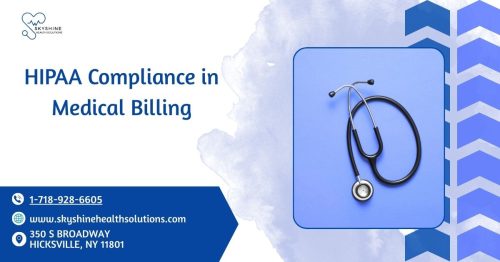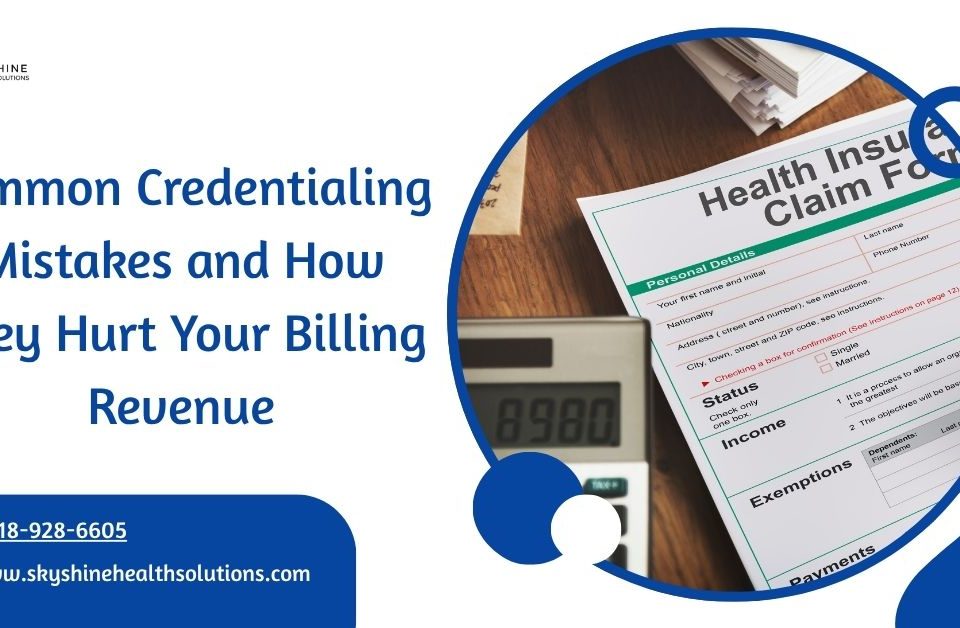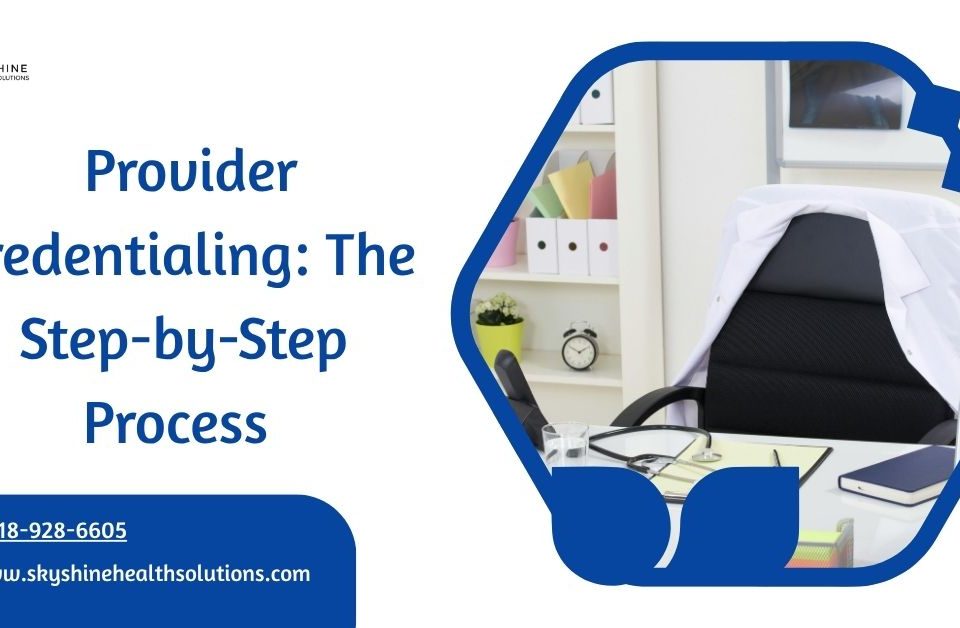
Why Credentialing Verification Matters in medical billing 2025
June 17, 2025
Outsourced vs. In-House Billing: Pros & Cons for Small Practices
June 22, 2025The National Provider Identifier (NPI) or NPI number is a cornerstone of medical billing, enabling healthcare providers to bill insurance payers and comply with federal regulations. Whether you’re a medical biller, practice manager, or provider, understanding NPIs is essential for smooth claims processing and revenue cycle management. In this 2025 guide, we’ll break down what NPI numbers are, why they matter, how to obtain one, and best practices to avoid costly errors.

What Is an NPI Number?
An NPI is a unique 10-digit identifier assigned to healthcare providers by the Centers for Medicare & Medicaid Services (CMS). Mandated by the Health Insurance Portability and Accountability Act (HIPAA), NPIs standardize provider identification across payers, replacing older identifiers like UPIN or payer-specific numbers.
There are two types of NPIs:
-
-
-
Type 1 (Individual): For individual providers, such as physicians, nurses, or therapists.
-
Type 2 (Organizational): For entities, such as hospitals, clinics, or group practices.
-
-
NPIs are required for billing Medicare, Medicaid, and commercial insurers, as well as for electronic health transactions like claims submissions and eligibility checks.
Why NPI Number Matter in Medical Billing
NPIs are critical for efficient and compliant medical billing. Here’s why they’re indispensable:
1. Enables Claims Processing
Payers require a valid NPI on every claim. Without it, claims are rejected, delaying payments and disrupting your revenue cycle. For example, a missing or incorrect NPI can lead to a denial code like CO-16, costing time and resources to correct.
2. Ensures HIPAA Compliance
HIPAA mandates NPIs for all covered entities (providers, payers, and clearinghouses) to standardize transactions. Non-compliance, such as using an invalid NPI, can trigger audits or penalties from CMS.
3. Simplifies Provider Identification
NPIs create a universal identifier, eliminating confusion from multiple payer-specific IDs. This streamlines communication between providers, payers, and patients.
4. Supports Credentialing and Enrollment
NPIs are a prerequisite for provider enrollment with payers. During credentialing, payers verify the NPI against the National Plan and Provider Enumeration System (NPPES) to confirm a provider’s legitimacy.
5. Enhances Patient Trust
A registered NPI signals that a provider is recognized by CMS, boosting credibility with patients and payers.
How to Obtain an NPI Number
Applying for an NPI is straightforward and free. Follow these steps:
1. Visit the NPPES Website
Access the National Plan and Provider Enumeration System (NPPES) at https://nppes.cms.hhs.gov. Create an account or log in to start the application.
2. Choose the NPI Type
Select Type 1 for individual providers or Type 2 for organizations. Solo practitioners may need both if billing as an individual and a business entity.
3. Complete the Application
Provide details such as:
-
-
-
Name: Full legal name (for individuals) or organization name.
-
Taxonomy Code: A code describing your specialty (e.g., 207R00000X for internal medicine).
-
Practice Address: Primary location for billing and services.
-
Contact Information: Email and phone for verification.
-
-
Tip: Use the CMS Taxonomy Lookup tool to find the correct code.
4. Submit and Verify
Review your application for accuracy, then submit. CMS typically issues an NPI within 10-20 business days. You’ll receive a confirmation email with your NPI.
5. Update profile and Payers
Add your NPI to your healthcare profile and notify all payers you’re enrolled with to ensure seamless billing.
Common NPI Mistakes to Avoid
Errors with NPIs can lead to claim denials and administrative headaches. Watch out for these pitfalls:
-
-
-
Incorrect NPI Type: Using a Type 1 NPI for a group practice can cause rejections. Ensure the correct type is used for billing.
-
Outdated Information: Failing to update practice addresses or taxonomy codes in NPPES can lead to mismatches during payer verification.
-
Sharing NPIs: NPIs are provider-specific; never share them across providers or practices.
-
Missing NPI on Claims: Always include the billing and rendering provider’s NPI on CMS-1500 or UB-04 forms.
-
Typographical Errors: Double-check NPI digits before submitting claims to avoid denials.
-
-
Best Practices for Managing NPI Numbers
To keep your NPI-related processes smooth, follow these tips:
1. Regularly Update NPPES
Update your NPI record in NPPES whenever your practice address, taxonomy, or contact details change. CMS requires updates within 30 days of any change.
-
-
-
Tip: Set a quarterly reminder to review your NPPES profile.
-
-
2. Use Billing Software
Modern practice management systems, validate NPIs before claim submission, reducing errors.
3. Train Your Billing Team
Educate staff on NPI requirements, including how to verify NPIs via NPPES and handle denials caused by NPI issues.
4. Monitor Denials
Track claim denials related to NPIs (e.g., CO-16 or MA130) to identify patterns and address root causes, such as outdated records.
The Impact of NPIs on Your Revenue Cycle
A valid and properly managed NPI directly supports your revenue cycle by:
-
-
-
Reducing Denials: Accurate NPIs minimize rejections, ensuring faster reimbursements.
-
Speeding Up Enrollment: A verified NPI accelerates payer enrollment, allowing providers to bill sooner.
-
Lowering Administrative Costs: Fewer errors mean less time spent on claim rework.
-
-
A 2024 MGMA report noted that 62% of claim denials were linked to provider identification errors, with NPIs being a common culprit. Proactive NPI management can save thousands annually.
The Future of NPIs in 2025
As healthcare digitizes, NPIs remain central to interoperability and compliance. Emerging trends include:
-
-
-
Enhanced NPI Validation: Payers are adopting AI to cross-check NPIs with real-time data, flagging discrepancies instantly.
-
Telehealth Expansion: NPIs are critical for verifying remote providers, with increased scrutiny on taxonomy codes.
-
Data Security: CMS is strengthening NPI protections to prevent fraud, requiring secure handling of NPI records.
-
-
Conclusion
NPI numbers are more than just digits—they’re the key to compliant, efficient medical billing. By understanding their role, obtaining them correctly, and managing them proactively, medical billers and providers can avoid denials, streamline enrollment, and protect their revenue cycle. In 2025, mastering NPI management is a must for any practice aiming to thrive in a complex healthcare landscape.

Check related blog HIPAA Compliance in Medical Billing
Learn Reviews how we are improving lives.















